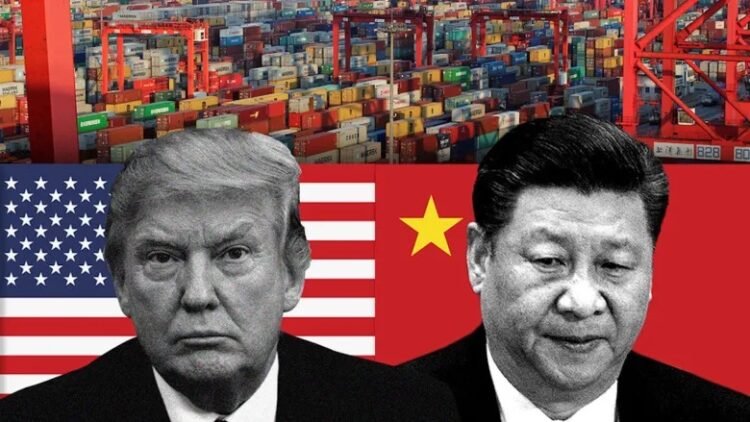GENEVA — Senior U.S. officials on Sunday declared “substantial progress” in high-stakes trade talks with China, signaling the possible end of a tariff war that has rattled global markets and strained the world’s two largest economies.
In a joint appearance following two days of closed-door negotiations in Switzerland, Treasury Secretary Scott Bessent and U.S. Trade Representative Jamieson Greer said the discussions were “productive” and hinted that a formal agreement has been reached — though full details are expected Monday.
“I’m happy to report that we’ve made substantial progress,” Bessent told reporters outside the Geneva venue. “These were very important trade talks, and we believe the path ahead is promising.”
The optimism comes just weeks after President Donald Trump escalated the economic conflict by slapping sweeping 145% tariffs on a majority of Chinese imports — a move that triggered 125% retaliatory tariffs from Beijing. Despite the tensions, Greer said the rapid turnaround in Geneva was a sign that the underlying issues might not have been as unbridgeable as once feared.
“The speed of this agreement shows that our differences may have been overstated,” Greer said. “This is a key step in resolving what the president rightly declared a national economic emergency.”
Deal Reached Amid Economic Fallout
While neither official provided granular details, they confirmed that President Trump had been fully briefed and was closely involved throughout the weekend. The White House had hinted that the president was open to reducing the current tariff rate to 80%, contingent on Chinese concessions — a position now appearing to form the backbone of the deal.
News of the breakthrough was met with cautious optimism from economists and market watchers, though many warned that the impact of the trade war will linger well beyond any immediate agreement.
“Tariffs this severe don’t just disappear overnight,” said Ryan Petersen, CEO of Flexport, a global logistics firm. “Even halving them may not fully revive U.S.-China trade flows in the near term.”
Indeed, the economic toll has been sharp. Chinese exports to the U.S. dropped 21% year-over-year in April to $33 billion, while U.S. imports from China have plunged nearly 60% since the tariffs were enacted. The National Retail Federation projects a 20% annual decline in U.S. imports overall for the second half of 2025, with Chinese shipments expected to fall even further — by 75% to 80%, according to JPMorgan.
At home, Americans are already feeling the pinch. Goldman Sachs warned last week that core inflation could double to 4% by year’s end, driven largely by rising prices on goods from China — ranging from clothing and electronics to toys and kitchen appliances.
China Under Pressure
The economic strain is not one-sided. China’s manufacturing sector posted its fastest contraction in 16 months in April, prompting fresh urgency from Beijing to roll out domestic stimulus. Chinese officials had privately acknowledged that prolonged tension with the U.S. would hurt growth prospects.
Human Rights and Diplomacy Intersect
Adding a political wrinkle, President Trump signaled last week that he intended to raise the case of Jimmy Lai, the imprisoned Hong Kong media tycoon and democracy advocate, during the talks. Lai is facing a possible life sentence under China’s national security law. However, it remains unclear whether his case was formally discussed in Geneva.
Looking Ahead
With details of the U.S.-China agreement expected to emerge Monday, all eyes will be on the potential rollback of tariffs and what concessions were made by both sides. For now, the announcement in Geneva represents a crucial — if tentative — step toward ending a trade conflict that has defined economic policy in 2025.
“This is a thaw, not yet a resolution,” said one senior official. “But it’s a necessary turning point — for both countries, and for the world economy.”

 English
English



























































